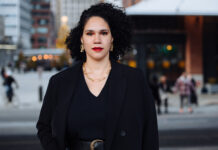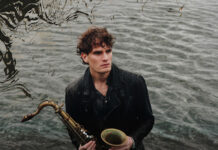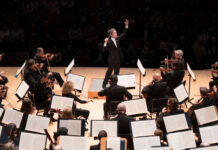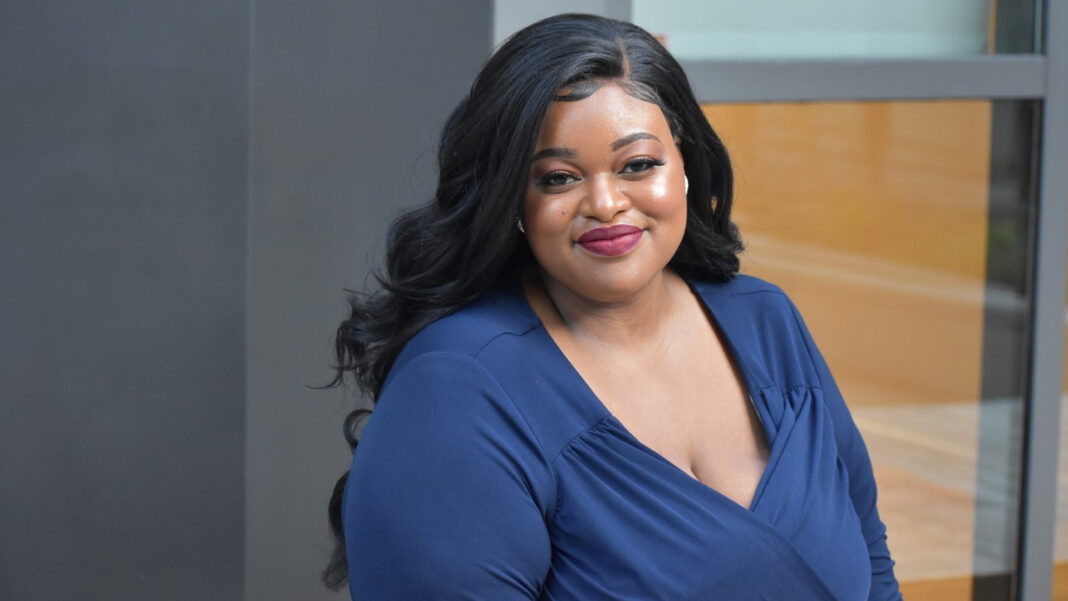The first Black composer to win a Pulitzer Prize for music was George Walker. Shortly after the world premiere of Lilacs in Boston in 1986 he was named that year’s recipient. It’s not a commonly performed work, but for obvious reasons a very important one. This weekend Opera Philadelphia will be giving two concerts where Lilacs will be paired with Igor Stravinsky’s Oedipus Rex. Singing Lilacs is soprano Tiffany Townsend.
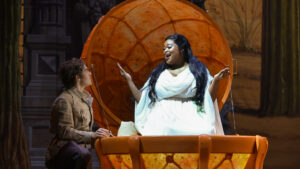
Townsend had previously performed at Opera Philadelphia in their 2019 production of Sergei Prokofiev’s The Love of Three Oranges. The Juilliard graduate has also performed at LA Opera in Giuseppe Verdi’s Il Trovatore and in their successful streaming production of The Anonymous Lover by Joseph Bologne, Chevalier de Saint-Georges.
Walker used four stanzas from Walt Whitman’s poem When Lilacs Last in the Dooryard Bloom’d for this work. Whitman wrote the poem as an elegy for Abraham Lincoln after the president’s assassination.
Two weeks before her first-ever performance of Lilacs Townsend and I spoke via Zoom. What follows are excerpts from that conversation that have been edited for length and clarity.
What resonance does Lilacs have for you personally?
I think the piece is a semblance of how we deal with grief and how we expand on that. For me it brings up a lot of how we actually deal with grief and the acceptance of passing and the acceptance of death. I think for me it’s a very beautiful kind of journey and the struggle of how you deal with grief and how it hits you – as it hits everyone differently.
Given everything the world has experienced for the last two years do you think there’s a topicality today to be found in Lilacs?
We’ve basically been shut down for two years. So many lives have been lost from COVID, from disasters, from all kinds of things. So I think Lilacs could be that acceptance of, not necessarily being happy about loss, but accepting that that is a natural part of life, unfortunately, and kind of figuring out how we deal with that and how we take steps to move forward from dealing with loss.
What are your challenges in singing this piece?
The hardest thing about singing this is the rhythms. Vocally it’s not really that challenging for me, but rhythmically, it’s more challenging than anything that I’ve sung. This is like the most like rhythmic kind of interesting mix meter things that I’ve ever sung.
Walker described some of his work as have been influenced by jazz, but that it definitely is not jazz. How do you see Lilacs within that description?
It’s very syncopated and I can figure those out. But it’s the way that it intermingles with the orchestra. It’s so cool, but also so unexpected. So it’s not really intuitive. It’s like the things that you think are going to happen don’t happen. So it’s really cool, but it’s really challenging.
Walker wrote this piece as a tribute to Black lyric tenor Roland Hayes who broke ground in the 1930s for his work as a singer. Is Hayes an inspiration for you? How do you acknowledge the shoulders of those who came before you?
Honestly in classical music there weren’t many African-Americans to look up to. He was one of those trailblazing artists and we are in debt to the people that came before us. I think for me it’s just to be true to ourselves and never trying to conform to what we think we need to be.
You didn’t set out to be an opera singer. In fact, you got your Bachelor’s Degree in Music as an instrumentalist, not a singer. Since you have both skills have you considered combining them? I believe there are few opera singers who can accompany themselves.
There is a clip of Erin Morley who I think was doing something for a Metropolitan Opera online gala that they had last year and she was accompanying herself and everyone was like, “Oh my God!” I have been thinking about doing something like that, but I have to get my piano skills back. I would love to do that. That sounds super cool. In addition to the classical pianist, I would also like to do more gospel music, church musician as well. I still tend to accompany myself when I’m singing gospel or jazz standards or anything like that.

You are coming of age an interesting time for Black artists with more attention being paid to inclusion. George Walker wrote an essay for the New York Times in 1991 entitled Make Room for Black Classical Music. He bemoaned what he referred to as “tokenism” referring to the inclusion of music by Black composers in the small window that exists from Martin Luther King, Jr.’s birthday through the end of Black History Month in February. How much do you think things have changed since he wrote that editorial? Is there room for improvement?
It’s half and half BUT I have to be positive because I do think we’ve come quite far. When I talk to my mom, who grew up in the ’60s, my grandfather made her and my uncle be the first to integrate a particular school in my hometown. To hear her talk about these things and say, ‘You guys, we can’t be this ungrateful. There are things that have really, really propelled and moved forward.”
But on the other hand, there are things that we’re still talking about in 2022. We can be appreciative of how far in society we’ve come in certain aspects but there’s still a lot of work to be done. And so I think I can be positive about being grateful about those certain things, but I still shouldn’t have to prove that I deserve to be. I still shouldn’t have to look over my shoulder and be like, am I just here because I’m Black or am I here because I’m talented? I tend to be the only black person in the room. I see that changing. As long as there is movement forward, I think we’ll be OK…hopefully.
Note: Opera Philadelphia will be live-streaming the performance on Friday, January 21st at 8:00 PM ET. The performance will remain available for viewing through February 20th at www.operaphila.tv.
For details and tickets to either live performance, please go here.
Photo: Tiffany Townsend (Photo by Amanda Lynn Bottoms/Courtesy Opera Philadelphia)


